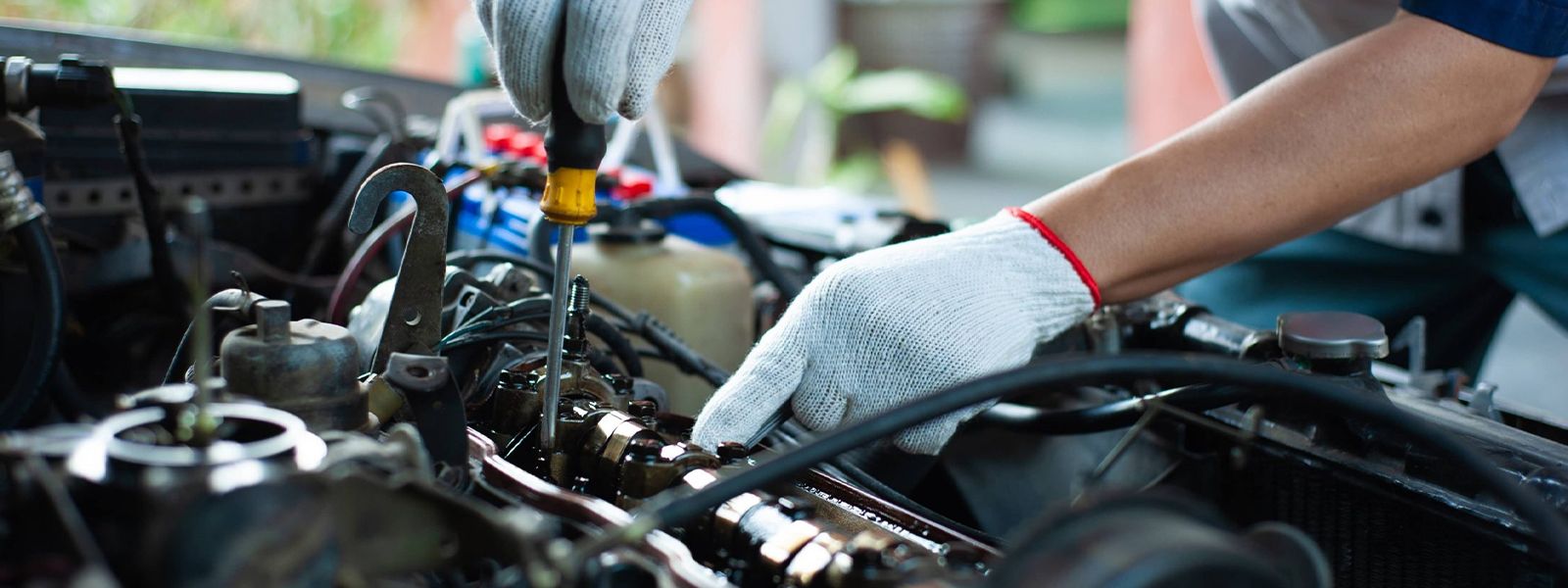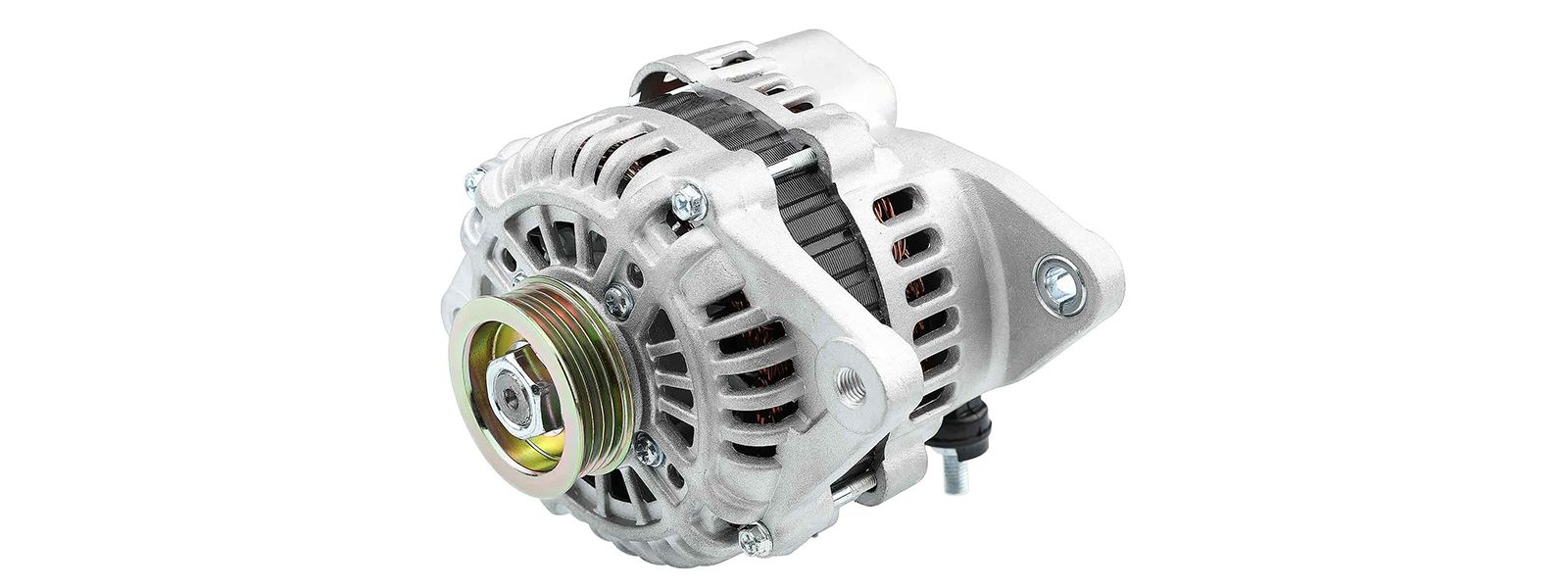
How Long Does It Take to Fix an Alternator?

Repairing an alternator typically takes 1-3 hours, depending on the vehicle and whether it's a repair or replacement. Prompt service is essential to prevent further electrical issues.
Suggested A-Premium Parts
An alternator is a crucial component in a vehicle's electrical system, responsible for charging the battery and powering the electrical components while the engine is running. When an alternator fails, it can lead to a host of problems, from a dead battery to malfunctioning electrical systems. Consequently, getting a faulty alternator fixed promptly is essential. But how long does it typically take to fix an alternator?
Alternator Failure Step One: Diagnosis
Before any repair can begin, a proper diagnosis is necessary. Diagnosing an alternator problem can take anywhere from 15 minutes to an hour. This time frame depends on the complexity of the issue and the accessibility of the alternator within the vehicle. A mechanic will often use a multimeter to check the voltage output of the alternator and inspect the condition of the drive belts and connections. If the alternator is indeed the culprit, the next step is either repair or replacement.
Repair or Replacement?
Whether the alternator can be repaired or needs to be replaced will significantly impact the total time required. In some cases, minor issues such as worn-out bearings, brushes, or a faulty voltage regulator can be repaired. This type of repair may take about 1 to 2 hours, depending on the availability of parts and the specific vehicle model.
However, more often than not, replacing the alternator is the recommended solution. Modern alternators are complex and repairing them is not always cost-effective. Replacement ensures a longer-lasting solution and often comes with a warranty.
Can you fix an alternator by yourself?
Repairing an alternator yourself is possible if you have moderate mechanical skills and the right tools. Start by diagnosing the issue with a multimeter, then decide whether to repair or replace it. Basic repairs like replacing brushes or bearings are relatively simple, but complex issues may require a full replacement. To remove and install the alternator, you'll need wrenches, sockets, and screwdrivers, and you may need additional tools depending on the vehicle. Disconnect the battery before starting to avoid electrical hazards. While fixing an alternator can save on labor costs and be rewarding, it's best to consult a professional if you're unsure or lack the necessary tools.
Time Required for Replacement
The time it takes to replace an alternator varies based on several factors:
- Vehicle Make and Model: The design of the vehicle greatly influences the accessibility of the alternator. In some vehicles, the alternator is easily accessible, while in others, it might be buried under other components, requiring more disassembly.
- Experience of the Mechanic: An experienced mechanic familiar with the vehicle model can typically complete the job more quickly than someone less experienced.
- ools and Equipment: Having the right tools can make the process faster. Modern repair shops with advanced equipment may expedite the process.
Generally, replacing an alternator takes about 1 to 3 hours. For straightforward jobs where the alternator is easily accessible, it can be as quick as an hour. For more complex vehicles where significant disassembly is required, it might take up to 3 hours or more.
Additional Factors
Certain factors can extend the time needed for an alternator fix:
- Parts Availability: If the alternator or specific parts need to be ordered, this can delay the repair process.
- Concurrent Issues: Sometimes, additional issues are discovered during the repair, such as damaged wiring or other worn components, which need to be addressed simultaneously.
- Shop Workload: The current workload of the repair shop can affect how soon they can start working on your vehicle. Busy shops might have longer wait times.
Common Symptoms of a Failing Alternator
Recognizing the symptoms of a failing alternator early can prevent further damage to your vehicle’s electrical system and avoid unexpected breakdowns. Here are some common signs to watch for:
- Dim or Flickering Lights: One of the most noticeable signs is dimming or flickering headlights and dashboard lights. As the alternator begins to fail, it can't provide a steady power supply, causing lights to behave erratically.
- Battery Warning Light: Most vehicles have a dashboard warning light that looks like a battery. If this light comes on while you’re driving, it could indicate a problem with the alternator, not just the battery.
- Weak or Dead Battery: A failing alternator won't charge the battery properly, leading to a weak or dead battery. If your vehicle frequently needs jump-starts, it could be due to a faulty alternator.
- Strange Noises: Unusual noises such as grinding or whining sounds coming from the engine can signal alternator issues. These sounds may be caused by a worn-out bearing or other internal components.
- Electrical Failures: A failing alternator can cause various electrical issues, such as malfunctioning power windows, radio, or other electronic accessories. Inconsistent electrical performance is a key indicator of alternator trouble.
- Engine Stalling: The alternator supplies power to the ignition system. If it’s failing, you might experience engine stalling or trouble starting the vehicle.
- Burning Smell: A burning rubber smell can indicate the alternator is overheating due to friction from a worn-out bearing or slipping drive belt.
Identifying these symptoms early and getting your alternator checked and repaired promptly can save you from more extensive and costly repairs down the road.
Conclusion
Fixing an alternator can take anywhere from an hour to a few hours, depending on whether a repair or replacement is necessary, the vehicle's make and model, and the mechanic's experience. For most drivers, expecting a timeframe of 1 to 3 hours for a replacement is reasonable. Prompt attention to alternator issues can prevent further damage and ensure the reliability of your vehicle’s electrical system, making it worth the time invested in the repair.










